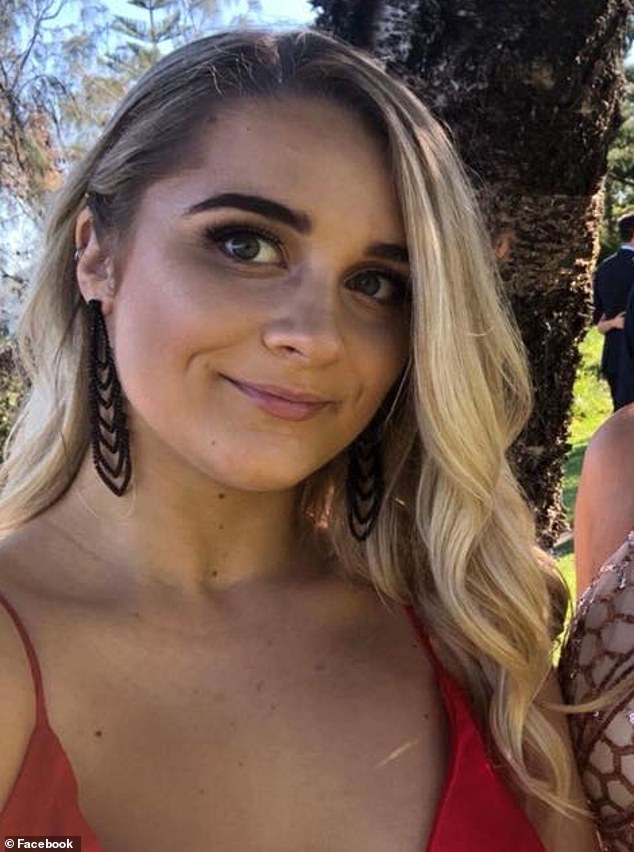Alex Ross-King died while partying at a music festival. Her mother claims her death could have been avoided by one change
A grieving mother who accidentally became an advocate says NSW should follow the lead of other states in introducing a pill-testing program. They are unanimous: ‘It will save lives’.
It’s been more than four years since NSW woman Jennie Ross-King lost her 19-year-old daughter Alex after she overdosed on three MDMA capsules at the Parramatta-based FOMO music festival.
During a 2019 inquest into deaths at music festivals in Sydney, it was revealed that Alex had told friends she had unknowingly taken the lethal dose before entering the event. She was afraid of being caught by police.
Ms Ross-King, who says she is not pro-drug and has never used illegal drugs, believes her daughter’s death could have been prevented if she had been better informed and given information about the symptoms of an overdose and the dangers of mixing MDMA and alcohol.
It’s one of the reasons she advocates for drug testing services, better known as pill testing, where users can freely and legally have their substances tested for composition, purity and, in some cases, potency, before meeting with a medical professional trained in harm minimization and risk.
“What better time to have a conversation with a medical expert than when he or she has a pill in hand,” Ross-King told NewsWire.
“It’s when a young person really stops and asks themselves, ‘Wait a minute, can this hurt me, and if it does, what can I do about it?’
“There were screenshots on her phone of the symptoms of an MDMA overdose, such as overheating and dizziness, but that’s not the same as getting that information from someone credible and wearing a lab coat.”
Grieving mother turned accidental advocate Jennie Ross-King (right) says NSW must catch up with other states in implementing pill testing program
Alex’s death also highlighted how little Mrs Ross-King herself knew about drugs, meaning she was unable to have conversations about risk management and what to do if she overdosed.
‘There is very little I regret in life, but I really wish I had taken drugs when I was young because I would have had a little more experience, knowledge and credibility so that Alex could have come out and dealt with it could talk to me about. ,’ she says.
‘I wish I had told her that. Then we could have explored it together, talked about the possible consequences and what to do if something went wrong.
‘The conversation I had with Alex (about drugs) would look very different now, with the information I have now.’
Ms Ross-King’s comments come as Victoria Premier Jacinta Allen abruptly announced that free and legal mobile drug testing services would be deployed at ten locations during the summer festival period, with a permanent facility operating from mid-2025.
In April this year, Queensland also opened a permanent location in Bowen Hills, a suburb of Brisbane CBD, following the success of ACT’s CanTEST program which launched in 2022.
In light of Victoria’s change of heart – a state that has also historically been against drug controls – advocates have been pressing NSW Premier Chris Minns to also consider further reforms.
However, the prime minister has postponed further changes until after a promised drugs ban, the date of which has not yet been announced, much to the anger of civil society groups.

Ms Ross-King said she wished she and Alex could talk more freely about drugs
Cameron Francis, CEO of The Loop, says the Victorian government’s decision leaves NSW “on its own”.
The organization is conducting NSW’s first drug monitoring pilot at the Kings Cross Medical Supervised Injection Center (MSIC), as part of a research project with the University of New South Wales and the Bowen Hills site in Queensland.
‘Drug checks are a very logical solution. It has been proven in Australia and several times abroad,” he says.
“I really feel for the friends and families who have lost people at festivals, or those who have lost loved ones to drugs, because we don’t have to wait for another high-profile tragedy to make this policy a reality.”
Vocal drug reform campaigners, Uniting NSW. Emma Maiden, ACT’s general manager of advocacy and external relations, said the organization would offer its churches to host community services.
“The summer festival season is already upon us and we must take the time now to plan a proper response,” she said.
Ms Maiden noted that Victoria and Queensland had made “sound decisions” without “the need for a drug ban”.
“It was nice to hear the Victorian Premier say that through drug checks, ‘If one life is saved it will be worth it’ because that’s what we said.

During a 2019 inquest into deaths at Sydney music festivals, it was revealed that Alex (pictured) had told friends she had unknowingly taken the lethal dose before entering the event because she was afraid of being caught by police.
‘Ms Allan didn’t need a drugs stop because the reality is the evidence is there and the truth is if one life is saved it will be worth it.
“We hope the New South Wales Government will look at the evidence and not have to wait for a trial to implement sensible, evidence-based policy.”
When asked for comment, Mr Minns did not respond to direct questions about whether NSW would consider measures around drug control, although historically he has not ruled out possible reforms.
He also declined to say when the state would announce a drug freeze.
“The biggest issue facing families in NSW at the moment is the cost of living. That must be the focus of this government,” he said.
“The funding is in the budget, and as soon as we can announce details, we will do so.”
Health Minister Ryan Park said planning for the summit is well underway.
“I can assure the community that this summit is fully funded and is being worked on to ensure we get it right,” he said.
